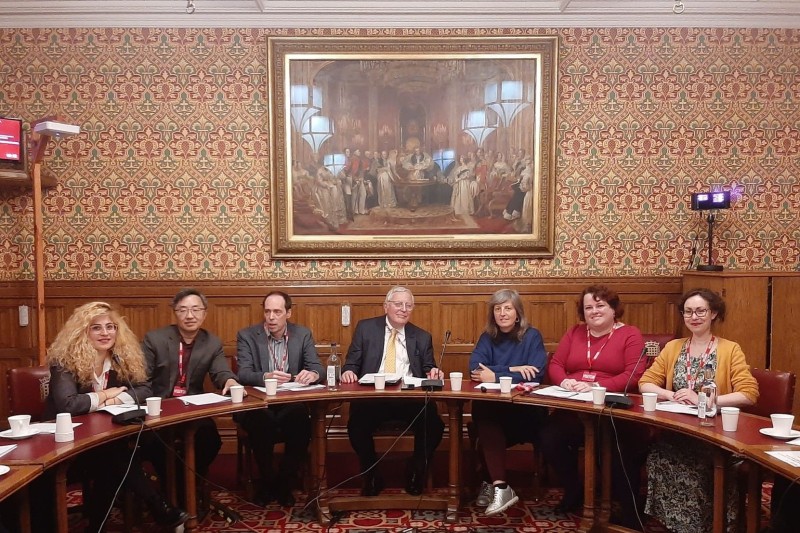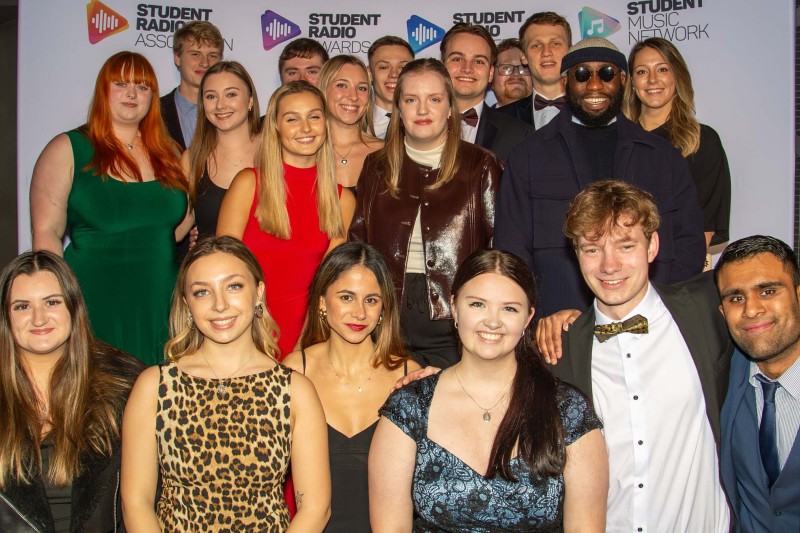Researchers from Bournemouth University who are investigating the use of generative artificial intelligence (AI) tools in media creation have shared their findings and recommendations at a Parliamentary event.
The Shared Post-Human Imagination: Human-AI Collaboration in Media Creation project has been funded by the Arts and Humanities Research Council (AHRC) as part of the Bridging Responsible AI Divides (BRAID) programme. It examines the use of AI tools in media creation and its potential impact on creativity, authorship, and ownership.
 The BU research team with Lord Tim Clement-Jones (centre)
The BU research team with Lord Tim Clement-Jones (centre)The project is being led by BU in partnership with researchers from the University of Michigan, USA and Zhejiang University in China.
Users of generative AI can produce stories, scripts, images, music, and even entire films simply by prompting widely available, often free-to-use AI models – leading to a number of potential moral, ethical, and legal issues as well as questions around creativity, ownership and bias.
However, there currently exists little in the way of guidance, regulation, and recommendations for best practice around how to integrate generative AI into UK media production in a responsible and ethical way.
The research team were invited to Parliament to share their findings and proposed legal and policy interventions as part of the event, which took place at the House of Lords.
Held in partnership with think tank Policy Connect and chaired by Lord Tim Clement-Jones, the event featured a presentation from the BU team in which they outlined seven core principles to adhere to when working with generative AI tools for media production.
These include accountability, transparency, collaboration, and interdisciplinarity, as well as the need to use open datasets, redress of bias and to have informed affirmative consent.
The session also featured a discussion on the research project and its findings, particularly regarding the need for education on responsible use of Generative AI, and its impact on intellectual property, labour, and accessibility.
Authorship and intellectual property of both the input and output of generative AI were identified as crucial to ensuring fair and sustainable use of generative AI that enhances job opportunities for the media industry.
There was also a focus on accessibility, with participants remarking on the importance of encouraging more diversity in generative AI development and increasing access to education on responsible use of generative AI tools in the media industry.
Dr Szilvia Ruszev, a Senior Lecturer in Post Production at BU who is leading the project, said: “It’s incredibly rewarding to be part of translating research into meaningful, actionable outcomes that can positively impact people’s lives. We are looking forward to developing this research further.”



